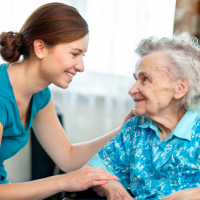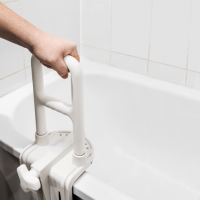Exploring Common Objections To Starting Hospice Care

Choosing care options for a loved one with a life-limiting illness is, of course, extremely difficult. Particularly when multiple family members are involved, there are a number of differing opinions and emotions to deal with. When it comes to hospice care specifically, there are two common objections that are mentioned more than any others. Here is a brief explanation and exploration of each.
- Not ready for hospice
This argument against starting a patient in hospice care can stem from a medical concern, emotional concern, or a combination of the two. The family may feel that their loved one's prognosis isn't severe enough yet to warrant hospice care. Or, they may not want their loved one to think that the family, or the patient themselves, is giving up. Of course, hospice care isn't about giving up and some education about its benefits can be helpful in this case. There are even studies to point to that suggest that hospice care improves quality of life, reduces the stress on families, and, in some cases, has even prolonged life. There are similar studies that counter objections over the severity of a patient's illness. Most notably, that patients who receive hospice care for longer typically enjoy more benefits from it. Again, education can be key. Hospice care doesn't have to begin when a patient only has days left to live. Instead, it can be used for several months to ensure a patient is able to enjoy a high quality of life for the time they have left.
- My loved one will die sooner
This is a related objection and typically stems from the belief that hospice care is akin to giving up. While the treatment plan under hospice care is likely less aggressive than the treatment received in a hospital, research supports hospice's ability to prolong patients' lives in many cases. This can be attributed to a lower stress environment, the management of pain and symptoms, and the comfort of being at home and around family. Rather than abandoning hope when electing to start hospice care, patients are able to redefine goals for treatment and fully embrace their situation. That often means they're able to attend a special event, like a family wedding, or enjoy one last boat ride or enjoyable experience, that otherwise would have been impossible. This approach to end of life care prioritizes the patient's wishes and comfort in order to provide them with days well spent.
If you'd like to learn more about hospice care, we invite you to contact us at Cura-HPC. Our experienced staff of medical professionals would be happy to help you decide whether hospice and palliative care is right for your loved one, or to help you develop a plan for your own end of life care. Call us at (800)797-3839.



